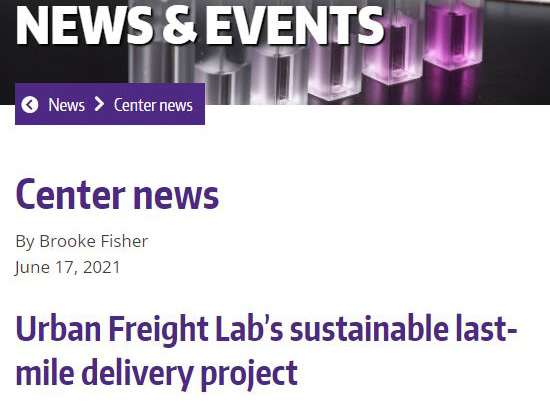
By Brooke Fisher
In the Belltown neighborhood of Seattle, the Supply Chain Transportation & Logistics Center’s (SCTL) Urban Freight Lab has launched one of the nation’s first zero-emissions delivery pilots that focuses on the “last-mile” — when parcels are moved from a transportation hub to a final destination. The project is a collaboration between the City of Seattle and tech and delivery companies including AxleHire, Coaster Cycles, BrightDrop and REEF.
“In partnership with our members, and the City of Seattle, we are excited to help catalyze a transition to zero-emissions last-mile delivery,” says SCTL director and CEE professor Anne Goodchild. “We anticipate the pilot will reduce traffic in Belltown, provide access to safe and convenient goods and services, and allow our partners to test novel, zero-emissions delivery solutions.”
The pilot project builds on the center’s ongoing work to alleviate traffic congestion by addressing the last leg of urban deliveries, when delivery couriers must locate both parking and customers. In addition to alleviating congestion, improving urban delivery positively impacts sustainability, livability, business efficiency and consumer demand. The new zero-emissions last-mile delivery approach focuses on transporting goods from a transportation hub to a final destination utilizing new technology and green transportation options. At a staging location, pallets are loaded with packages before being connected to a three-wheeled electric bike. A driver then delivers packages to customers via the most efficient routes available.
By utilizing innovative technologies and solutions, the pilot project is designed to make the delivery of goods and services more sustainable, which is in alignment with the City of Seattle’s new Transportation Electrification Blueprint that includes the goal of transitioning 30% of goods delivery to zero emissions by 2030.